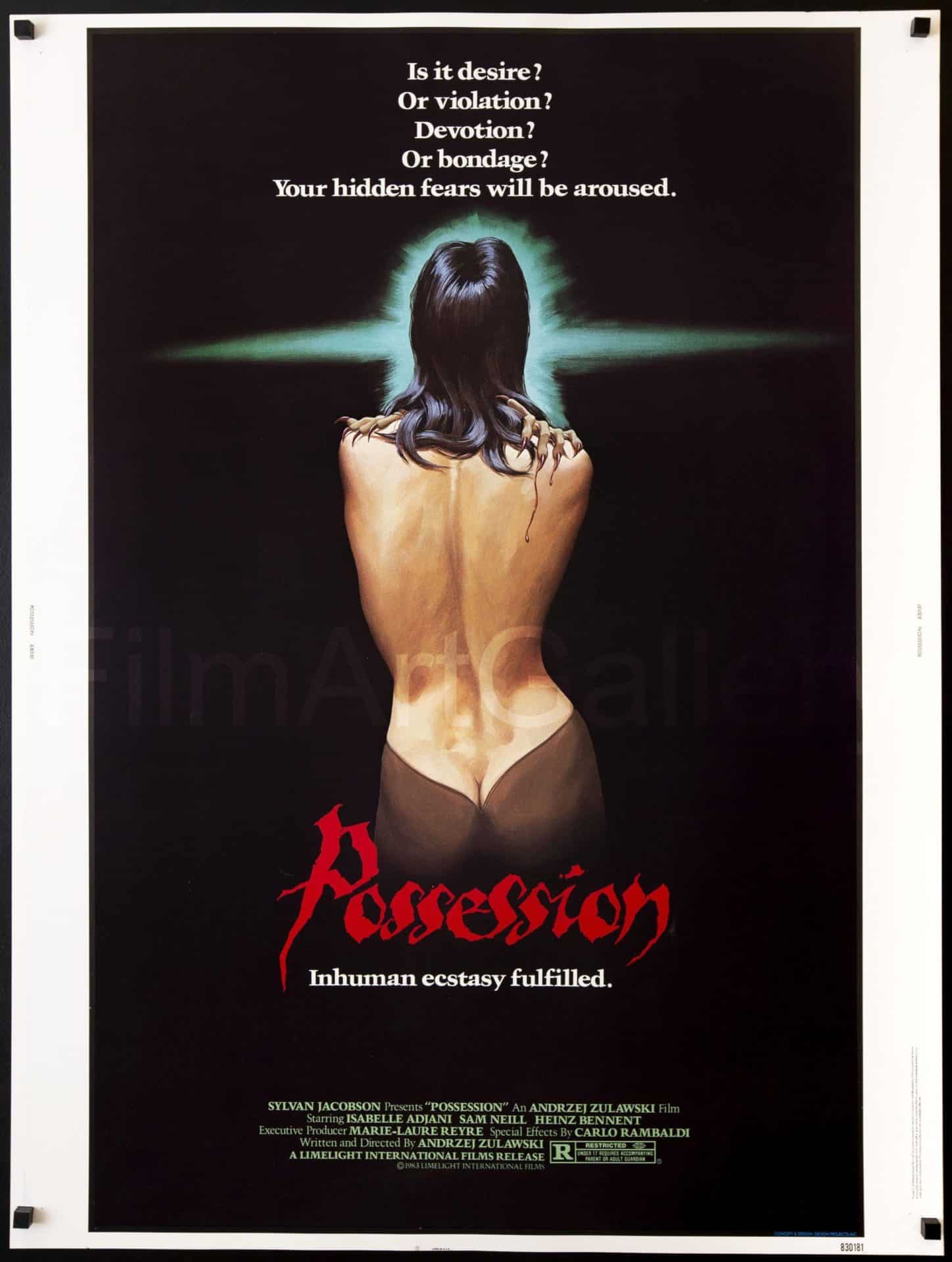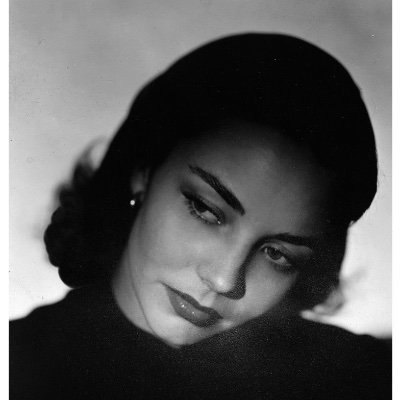
- Starring
- Isabelle Adjani, Sam Neill, Margit Carstensen
- Writers
- Andrzej Zulawski, Frederic Tuten
- Director
- Andrzej Zulawski
- Rating
- R (United States)
- Running Time
- 124 minutes
Overall Score
Rating Summary
Andrzej Źuławski’s Possession is determined to stay one step ahead of the audience by preventing them from placing exactly what time period or location this film is set. One can only really hold onto the idea that this is the story of a couple going through a break-up. From there, it assaults viewers with a barrage of scenes that don’t appear to be directly linked. It feels as though they are all vignettes that reflect the worsening psychological state of the main character. He is telling himself the same story, over and over, but as he grows more bitter and resentful towards his ex-wife, these stories begin to take a darker turn. Źuławski shows the world through the eyes of the male protagonist and deliberately omits information that could allow us to fully grasp the situation at hand. We come to understand what an unhealthy relationship can do to a person and, perhaps more importantly, realise why these two people were never right for one another in the first place.
Possession tells the story of Mark (Sam Neill), a Kiwi spy who lives in West Berlin with his French wife Anna (Adjani) and their son Bob (Michael Hogben). He is saddened by the fact that Anna would like to get a divorce and struggles to explain why she is no longer content with their marriage. He cannot understand his wife’s motivations and fears that she is sleeping with another man or plotting to destroy him. He slowly falls apart as their relationship continues to break down and he takes drastic action in order to find out more about his wife’s private life. This leads her to open up about a mysterious creature that she gave birth to in the wake of a miscarriage. He loses his mind as Anna becomes more and more dangerous.
When reading about Źuławski’s own divorce, one can’t help but draw conclusions about how autobiographical this story was. If we are to see Mark as a self insert character, it is easy to see this film as a confessional of sorts. Mark’s biggest flaw is that he simply doesn’t understand his wife and when he makes efforts to get close to her, his motivations are purely selfish. When we are first greeted with Anna, she appears to be a fickle, flighty woman who abruptly leaves Mark for absolutely no reason. We are seeing her through his eyes and she is framed as a wild, untamed animal who angrily bats away her husband’s displays of physical affection. It is only when we learn more about Anna’s backstory, that we begin to question the way that she has been presented to us. The script still leaves viewers to fill in a lot of gaps and isn’t too heavy on exposition, but it is clear that the creature is a metaphorical representation of all of the fears that Mark has about his wife. His neglect and obsessive focus on his work, led her to feel as though she was all alone in the world and her miscarriage only compounded this feeling. For Mark, it is impossible to imagine his wife being happier without him and he has to envision her as a hysterical loony who copulates with monstrous creatures.
When you rewatch Possession with the knowledge that Mark is an unreliable narrator of sorts, it adds extra depth to each scene. Mark’s fragility and inconsistent behaviour is more obvious from early on and it becomes harder to discern what he wants out of family life. He is oddly relatable from scene to scene, as somebody who is bewildered at the prospect of putting himself in somebody else’s shoes. He is often a reactive figure who responds to his wife’s comings and goings, without actually doing anything to repair their marriage. There is a brief scene in which he tells her that he cares deeply about being a devoted, loving father to their son. He makes the bold claim that he bases his life around caring for Bob but he only seems to care about this when it becomes a bargaining chip in their divorce. When he has to back up his words with actions, he goes off on a drinking binge, lets his son’s schoolteacher take care of him and stalks his wife around town whilst neglecting his son altogether. Of course, Anna is an even worse parent and she deserves the criticism that her husband throws at her for not being there for Bob. It is significant that both members of this couple are not very good at caring for this child and he becomes less and less of a factor as the story goes on. This is likely because Mark’s narcissism and obsession with Anna increases as their relationship continues to implode. Everything and everybody who isn’t them, is pushed to the side so that he can lose himself in his nightmarish fantasies.
The chaotic, often nonsensical final scenes of Possession can be explained as a product of Mark experiencing a full nervous breakdown. He has completely lost touch with reality and, in an effort to comfort himself, imagines a world in which he does not exist. There is no way for him to reconnect with the people that he loves and he has turned his misdirected hatred of his wife, back onto himself. He wants to believe that they could be replaced by two perfect versions of themselves, while still dying in each other’s arms. This fantasy gives him the opportunity to imagine his relationship with Anna as doomed and passionate. She still loves him in her final moments and wants to embrace him before giving up everything to avoid living in a world where they are in conflict. He doesn’t have to deal with the fact that he still doesn’t know her mind and he can lie to himself about Bob’s future.
This is one of those twisty horror films that gives people the opportunity to come up with their own theories and interpretations. It’s cleverly put together so that there is a lot of room to impress your own ideas upon what you are seeing. The editing is particularly ingenious, as jump cuts will be dropped in to create that feeling of uneasiness that hangs over everything. Anna will be running down the right side of the street one second, and the next she’ll be on the other side of the road without any smooth transition between the two positions having been depicted. It does cause us to feel as though somebody is constructing these images in their head and hastily deciding to edit or delete them, when they don’t go along with their desired narrative. It is also disturbing when we see Anna running towards the camera from far away, but never get to see her reach her intended position. It only heightens the tension that has been built up by the scenes that establish the central conflict. Źuławski never drops the ball when it comes to sustaining the tension or finding new ways to film nervous women running down streets.
In the end, viewers are unlikely to see anything else quite like Possession. It feels like it could only have been made during this time period, with this director and these stars. Adjani’s star turn is every bit as mesmerising as you have heard it is. She’s completely uninhibited and embraces the idea of her character serving as a reflection of a man’s frustrations. When she transitions from screeching in agony to shamefully glancing off into the distance to maniacally grinning, you legitimately believe that you are watching a crazy person. Adjani was very much in her comfort zone with this role but it doesn’t take away from the sheer force of her work.
I dare you to hold back from viscerally reacting to her work in some of her last scenes. In fact, this film as a whole could provoke a strong response out of any audience member.
Follow me on Twitter.
If you liked this, please read our other reviews here and don’t forget to follow us on Twitter or Instagram or like us on Facebook.

I am passionate about screwball comedies from the 1930s and certain actresses from the Golden Age of Hollywood. I’ll aim to review new Netflix releases and write features, so expect a lot of romantic comedies and cult favourites.
Discover more from
Subscribe to get the latest posts sent to your email.
